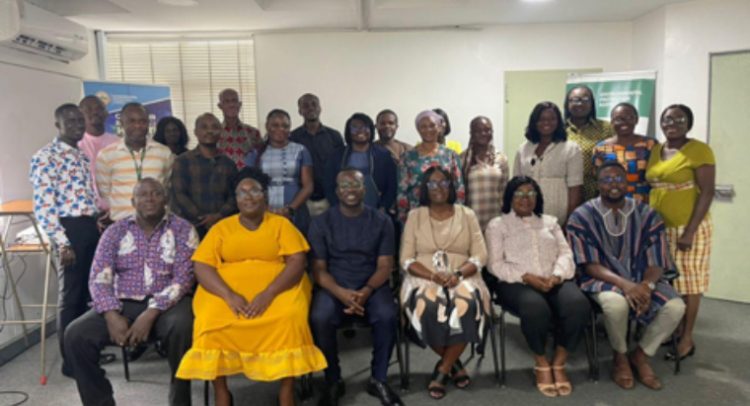Group photograph of stakeholders at the engagement in Accra
The Environmental Protection Agency (EPA) has engaged stakeholders on how to integrate environmental education into the curriculum of Early Childhood Education in Ghana.
Deputy Executive Director, Technical Services—EPA, Esi Nana Nerquaye-Tetteh, said the engagement aims to explore effective practices and opportunities towards empowering both educators and children to engage with their environment in meaningful ways.
According to Ms. Nerquaye-Tetteh, a solid foundation in literacy skills in early childhood is vital for academic success and future opportunities, adding that learning environmental education at the early childhood stage promotes critical and creative thinking skills and inspires learners to become more engaged with their communities.
Director of Early Childhood Education, Mrs. Priscilla Andzie-Walters, emphasised that challenges faced by the Early Childhood Education (ECE) sub-sector, particularly kindergarten education, include inadequate appreciation for the importance of ECE as a foundation for all other levels of education, limited funding for quality delivery and limited collaboration between ministries and agencies for quality ECE delivery.
She also mentioned that inadequate ECE-trained teachers with appropriate pedagogy, large class sizes with single teachers in some areas, inadequate teaching and learning resources in classrooms, inadequate leadership support at the district and school levels, and low parental and community engagement leading to mismatch in the expectations of parents and teachers, and inadequate and inappropriate infrastructures are some challenges of ECE in Ghana.
The engagement brought together stakeholders from the Ghana Education Service, Ministry of Education, Ministry of Gender, Children and Social Protection, Accra College of Education, National Council for Curriculum and Assessment (NCCA), National Schools Inspectorate Authority (NaSIA), National Teaching Council (NTC), National Nursery Teachers Training School, National Council for Private Early Childhood Growth & Development, Sabre Education, Model Nursery School, Merton International and UNICEF.
The Principal Programmes Officer (PPO) of the Environmental Education Unit and the Coordinator of the Consultative meeting, Mr. Samuel Nortey Quaye said Environmental Education refers to organized efforts to teach how the natural environment functions, particularly, how human beings can manage behavior and ecosystems to live sustainably.
Mr. Quaye said some approaches adopted by the unit include Stakeholder Engagement, Schools Programmes, Use of the Media, Engagement with Faith and Community Based Organizations, Exhibitions, Celebration of International World Days and the involvement of Environmental Assessment processes. He explained two methods adopted by the Environmental Education Unit in reaching their audience, the Discussion Method and the Project Method. The Discussion method includes simple form of group -based learning that provides for a broader participation and sufficient background information. He said the Project method is the purposeful activity undertaken for the solution of a problem and enhances knowledge acquisition and self-learning.
BY Prince Fiifi Yorke


